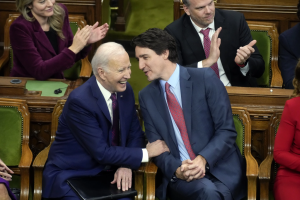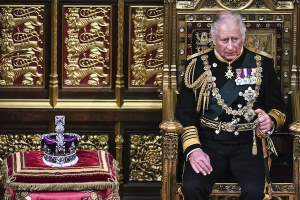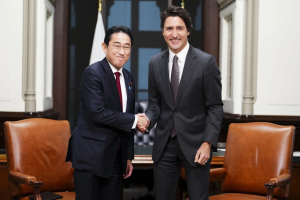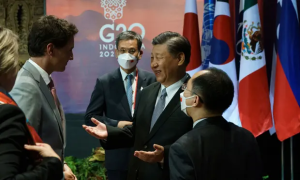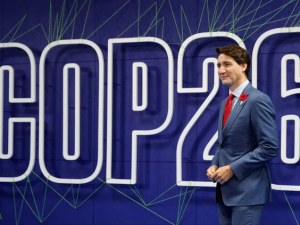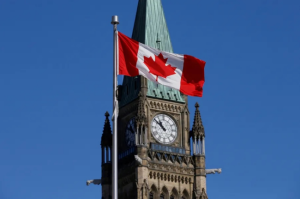Q&A with Bianca Navarro, GLOCAL Foundation Intern
Bianca Navarro, UBC Political Science student, draws on her time with GLOCAL Foundation and what she learned during her internship: “When I see the transformation of Canadian youth from passive recipients to active contributors, it gives me a strong sense of achievement and fulfillment.”
Look out for “subsidies for fossil fuels with green strings attached to them” in spring budget, says Prof. Kathryn Harrison
Prof. Kathryn Harrison was quoted in a National Observer article about potential clean energy investments in the 2023 Canadian spring budget, noting that despite climate change science, “the U.S. and Canadian governments continue to approve new fossil fuel infrastructure.”
In light of King Charles’ coronation, Prof. Emeritus Philip Resnick asks: should Canada retain a British monarch as our official head of state?
“Were Canada to go the republican route, we would need to do so through a long constitutional process. The Canadian constitution states that there must be unanimity of the provinces for changing the head of state. In addition, treaties between First Nations and the Crown would have to be carried forward into a Canadian republic.”
Canada gained “first-mover advantage” in Japan trade deal, says Prof. Yves Tiberghien
Prof. Yves Tiberghien was asked to comment on Japanese Prime Minister Kishida’s recent visit to Canada to discuss economic partnerships, clean energy, and the invasion of Ukraine.
Prof. Kathryn Harrison discusses what Canada and China co-hosting COP15 means for climate politics
Prof. Harrison reminds readers that “it’s easy to underestimate how many people there are at these meetings who are deeply committed to trying to move things forward in a positive way and who really care about climate and biodiversity,” despite the political tension present.
Prof. Yves Tiberghien on Canada’s changing attitudes to Chinese investments, and what that means for Canadian mining companies
“Canada has been a liberal believer in markets,” said Prof. Yves Tiberghien on the importance of critical minerals, “but those markets are not markets anymore… they are increasingly strategic spaces.”
Prof. Kathryn Harrison discusses Canadian climate politics under the Trudeau government
The current Trudeau government has been slow to act on environmental policy, despite the Prime Minister touting Canada as a leader in the fight against climate change. While this may be true, both Trudeau and Prof. Kathryn Harrison acknowledge that “[Canada’s] track record is not good.”
Prof. Antje Ellermann highlights growing relationship between Canadian migrants and Indigenous peoples
“A lot of things are coming together,” says Prof. Ellermann about the importance of Canadian migrants learning about Indigenous history. “I’m hoping that and I do think that there will be a real generational difference.”
Prof. Maxwell Cameron calls for return of civility and nonpartisanship to politics
Though Prof. Cameron has observed politicians being passionate about serving their constituents, he also notes their at-times “hyper-partisan, adversarial and uncivil behaviours.” Through facilitated reflective discussions, he hopes to solve this issue. “If politicians value civility,” Prof. Cameron writes, “they must learn to model it.”
Dr. Amy Janzwood co-authors story on harmful natural gas “bridge fuel” narrative
“Decarbonization will have real costs for oil producing provinces,” writes SSHRC Postdoctoral Fellow Amy Janzwood. “Successful policy-making needs to address these impacts up front.”

